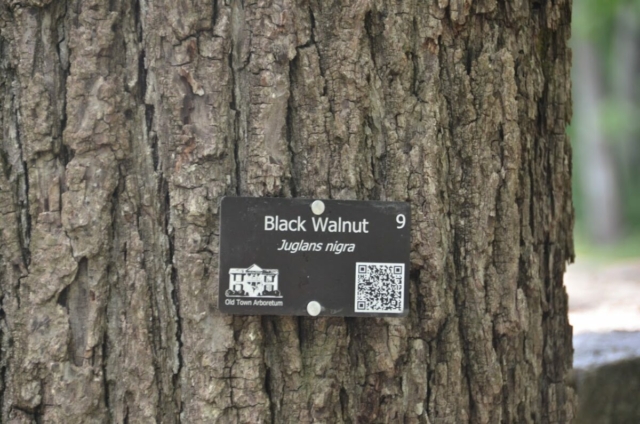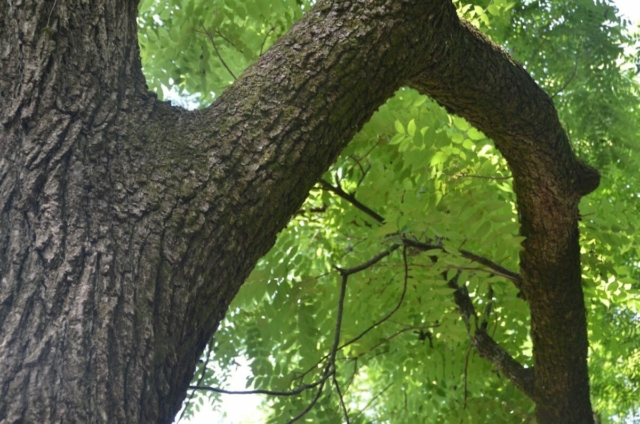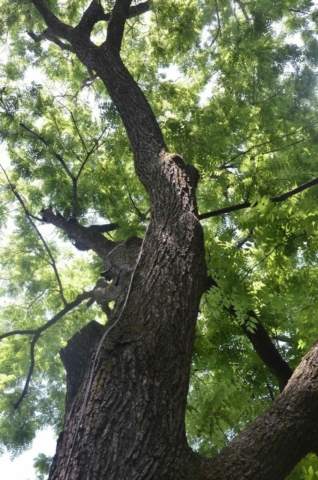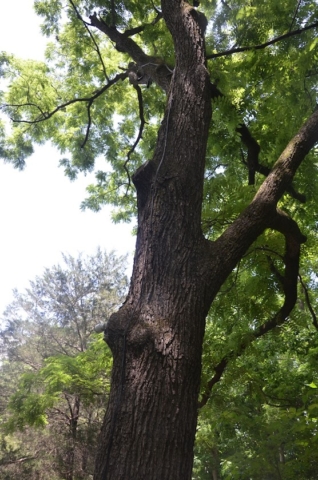Eastern American Black Walnut (Juglans nigra) is a species of deciduous tree in the walnut family, Juglandaceae, native to North America. It grows mostly in riparian zones, from southern Ontario, west to southeast South Dakota, south to Georgia, northern Florida, and southwest to central Texas. Wild trees in the upper Ottawa Valley may be an isolated native population or may have derived from planted trees. Black walnut is an important tree commercially, as the wood is a deep brown color and easily worked. The fruits, walnuts, are cultivated for their distinctive and desirable taste. Often, trees are grown for both lumber and walnuts simultaneously and many cultivars have been developed for improved quality nuts or wood. Black walnut is currently under pressure from the thousand cankers disease that is causing a decline of walnuts in some areas. Black walnut is also allelopathic, which means that it releases chemicals from roots and other tissues that harm some other organisms and give the tree a competitive advantage; this is often undesirable as it can harm garden plants and grasses.
If Trees Could Sing…
Click here to see Victor Wooten talk about one of his favorite trees. Video courtesy of The Nature Conservancy and Victor Wooten.
Image Gallery
Click an image below to start exploring.
Photos taken at Old Town June 2022.




